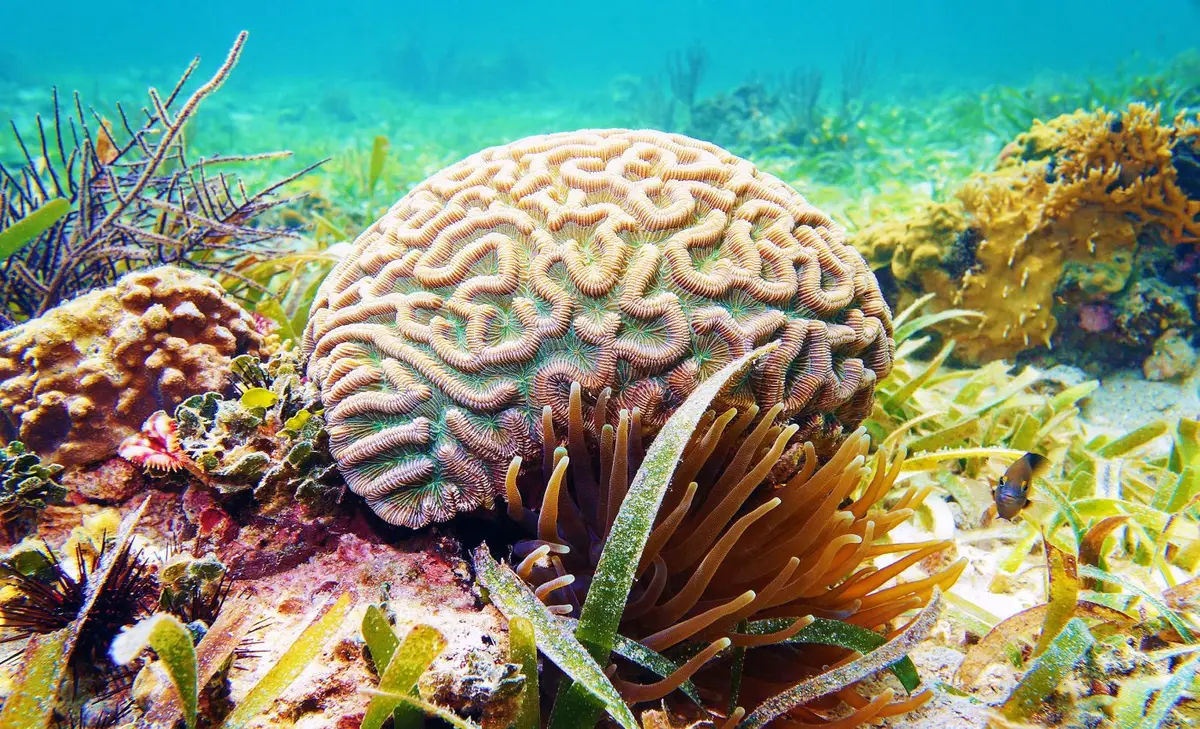An international team of climate experts has made this surprising discovery in coral research, proving once again the serious consequences of rising temperatures. In fact, the team’s research shows that 2022 will be the hottest year in these regions since 1370. These findings emerged as a result of a study on a giant colony Diploastera helioporaA giant coral species found in Fiji.
Coral reefs under conditions of rising sea surface temperature
In addition to their breathtaking beauty and diverse ecosystems, coral reefs serve as deep archives of past climate and environmental changes. In particular, changes in the chemical composition of these long-lived giant corals provide invaluable data that track centuries of climate change in the tropics, shaping the narrative of the human experience of climate change.
One of the leading scientists contributing to this study is Professor Denis Scholz, Head of the Isotope-Geochemical Paleoclimatology/Speleothem Research Group at the Institute of Earth Sciences of the Johann Gutenberg University Mainz (JGU).
Coral colonies and sea temperature
Speaking of value, the team recovered a 2-meter (6.5-foot) core from the giant coral colony mentioned above—no small feat considering corals only grow at a rate of 3 to 6 millimeters (0.12 to 0.24 inches) per year.
Experts then analyzed the chemical composition of the core skeleton and drew conclusions about temperature fluctuations over 627 years. These data were further enriched with 26 years of instrumental water temperature measurements.
Have you ever heard of the Southern Oscillation, El Nino? It is one of the major events that affect global climate, affecting human activities and natural ecosystems worldwide. The Southwest Pacific region plays a key role in modulating this oscillation.
home temperature sensors
We have thermometers and other temperature measuring devices. But nature has provided researchers with living temperature sensors in the form of corals. These underwater wonders record the chemical composition of the ocean around them in their skeletons every day. One particular aspect of this record is the ratio of strontium to calcium in the skeleton. A lower ratio indicates higher temperatures.
According to Professor Denis Scholz, head of the Isotope Geochemical Paleoclimatology/Speleothem Research Group at the JGU Institute of Earth Sciences, the current strontium/calcium ratio in the Fiji Archipelago corals represents the highest sea surface temperature in 653 years.
“We used uranium-thorium dating to determine the age of each deposited layer. We were thus able to independently verify and unambiguously confirm the identification of the number of individual annual layers. This made precise and absolute dating of the coral possible,” explained Scholz.
Looking to the past to predict the future
These findings not only paint a picture of our past, they also give us a glimpse into our future. Given current climate model simulations, the researchers predict that parts of the Pacific will experience more frequent droughts and heavy rainfall in the 21st century. And if these impacts are not addressed, the consequences could be catastrophic for both vulnerable Pacific island ecosystems and islanders.
Implications for marine biodiversity
The abundant marine life in the southwestern Pacific Ocean is under threat from rising sea temperatures. Coral reefs, like underwater rainforests, are home to about 25% of all ocean species.
Higher water temperatures can cause coral bleaching, damaging these beautiful ecosystems and reducing the diversity of life they support. This not only affects corals, but also disrupts the natural balance between species and threatens the health of fisheries that island communities depend on for food and income.
Coming together for a common purpose
This disturbing research is the result of a global collaboration across three continents. Participating universities and organizations include the National Autonomous University of Mexico (UNAM), the Autonomous University of Baja California, the University of Leicester, the University of New South Wales (UNSW), Monash University, University of Bordeaux, the Helmholtz Center Hereon and the Johannes Gutenberg University Mainz.
How will you respond to these surprising discoveries about rising sea surface temperatures? Let’s rethink our approach to environmental responsibility. The study was published in the journal Science Developments.
Source: Port Altele
